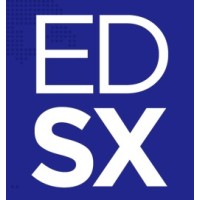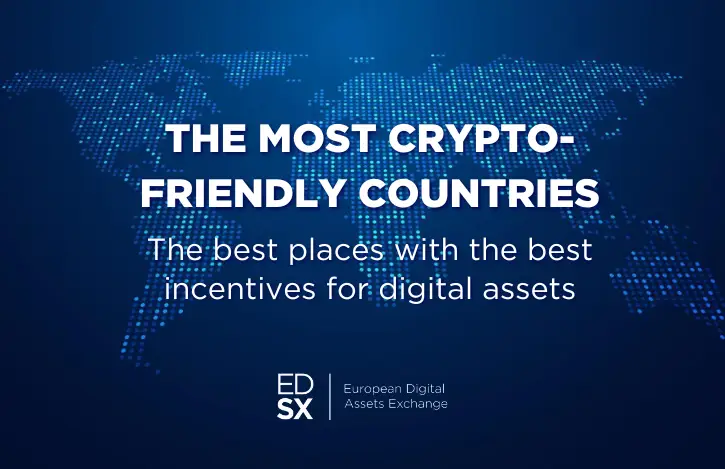In the era of growing digitization, the spotlight has intensified on digital tokens and blockchain technology. Notably, investors are actively seeking nations that provide a conducive environment for the flourishing realm of digital tokens. Therefore, in this comprehensive analysis, we will delve into the present status and future prospects of the world’s most crypto-friendly countries. This article will examine renowned nations such as the United States, Malta, Luxembourg, Liechtenstein, Switzerland, France, and the European Union.
The United States
In recent years, the United States has made significant strides in blockchain legislation. While state-level regulations are more prevalent, the Securities and Exchange Commission (SEC) plays a vital role in overseeing digital asset securities. The SEC introduced a framework in 2019 to determine if a digital asset qualifies as a security. Tokens meeting the criteria must register with the SEC or meet certain exemptions. Additionally, the SEC proposed Rule 195 in 2020, offering a three-year safe harbor for tokens that become “sufficiently decentralized.” Failure to comply with SEC regulations may result in civil penalties together with investor compensation rights.
Malta
Earning its moniker as the “Blockchain Island,” Malta has firmly established itself as one of the world’s most crypto-friendly countries. The nation’s progressive regulatory landscape positions it as a global leader in creating an environment that nurtures cryptocurrency and blockchain enterprises. Malta’s appeal is further heightened by its tax policies. As they feature a competitive tax regime and exemptions on capital gains. This attract individuals and businesses in the crypto space. Bolstering its commitment to clarity and protection, Malta has implemented pivotal legislative initiatives, including the Virtual Financial Assets Act and the Malta Digital Innovation Authority Act. This overall proactive approach has garnered international acclaim. It has solidified Malta as a preferred destination for blockchain and crypto companies seeking to establish their operations.
Luxembourg
Luxembourg has positioned itself as a favorable jurisdiction for infrastructure tokenization. The country’s legal framework provides legal certainty for using Distributed Ledger Technology (DLT) in issuing and circulating dematerialized securities. The 2013 law recognizes token transfers via DLT as equivalent to transfers between securities accounts, enabling the issuance of native tokenized securities without physical certificates. Overall, tokenized bonds can be issued as bearer securities without individual certificates for each bond, simplifying the process.
Liechtenstein
Liechtenstein has developed comprehensive regulatory guidelines under the Blockchain Act. The country has introduced the concept of a “Physischen Validator” to verify tokenized assets. Asset-backed tokens are regulated as digital assets and must meet specific criteria. The regulatory framework emphasizes the verification of tokenized asset conditions, ensuring transparency as well as investor protection.
Switzerland
Switzerland has taken significant steps in promoting a cryptofriendly environment. The country passed the Distributed Ledger Technology (DLT) Act, enabling the transfer of uncertificated registered securities without intermediaries. Switzerland’s formal recognition of ownership as well as transfer of digital securities without a signature has positioned it as a frontrunner in the field. The country’s regulatory framework facilitates the seamless transfer of securities, eliminating unnecessary intermediaries.
France
France has actively embraced blockchain technology and enacted regulations to foster entrepreneurship and innovation. The “Blockchain Order” was established in 2017, allowing for registration and securities transfers via DLT. The PACTE Law, enacted in 2019, covers regulatory, fiscal together with accounting aspects of digital assets. France’s frameworks facilitate the registration, transfer, and issuance of digital assets, providing a supportive environment for investors and entrepreneurs.
European Union (EU)
Recognizing the necessity to balance regulation, innovation, and consumer protection, the European Union emerges as one of the world’s most crypto-friendly countries. The proposed Regulation for Markets in Crypto Assets (MiCA), an integral part of the Digital Finance Package, underscores the EU’s commitment. It’s designed to offer legal certainty, promote innovation, as well as safeguard consumers. Mi’CA strives to establish a thorough regulatory framework for the EU’s crypto markets. With an overarching goal of creating a fair and level playing field, it aims to shape the dynamics of digital assets within the European Union. Therefore, solidifying its status as the economic block with the most crypto-friendly countries globally.
Implications
Every country’s regulatory stance plays a pivotal role in shaping the dynamics of the token economy. In Liechtenstein, a meticulous emphasis on verifying the conditions of tokenized assets not only ensures transparency but also instills confidence among investors. Meanwhile, Switzerland distinguishes itself by facilitating seamless securities transfer, eliminating intermediaries, and thereby streamlining processes while reducing costs. France, on the other hand, champions frameworks that bolster the registration, transfer, and issuance of digital assets. Therefore, they actively foster an environment conducive to entrepreneurship. Within the European Union, the proposed MiCA regulation aims to strike a delicate balance.
Examining the regulatory landscape across these jurisdictions reveals that the United States, Luxembourg, Liechtenstein, Switzerland, France, and the European Union stand out as some of the most crypto-friendly countries. Overall, each nation employs a unique approach, reflecting diverse perspectives on legal and operational aspects of digital tokens and blockchain technology. Notwithstanding the variations, the common goals across these regions include providing legal certainty, fostering innovation, as well as ensuring consumer protection. As investors navigate the complexities of the token economy, it becomes imperative to carefully consider the distinct regulatory frameworks and their implications within each of these crypto-friendly nations.

Based in Zug, the platform is fully compliant with all Swiss laws related to financial intermediaries, banking, anti-money laundering, and organized trading facilities. Among its core values, there are innovative solutions through blockchain technology, which ensures security and liquidity.
EDSX is the first platform in Europe with primary and secondary markets for both institutional and retails. EDSX is a pioneering platform that employs the world’s leading technology to globally list security tokens in both primary and secondary markets, listing digital securities of real financial instruments to the public with a decentralized peer-to-peer exchange. Our goal is to fully engage every aspect of the financial revolution.
Do you have a question for us?
Send your query here:
[email protected]

